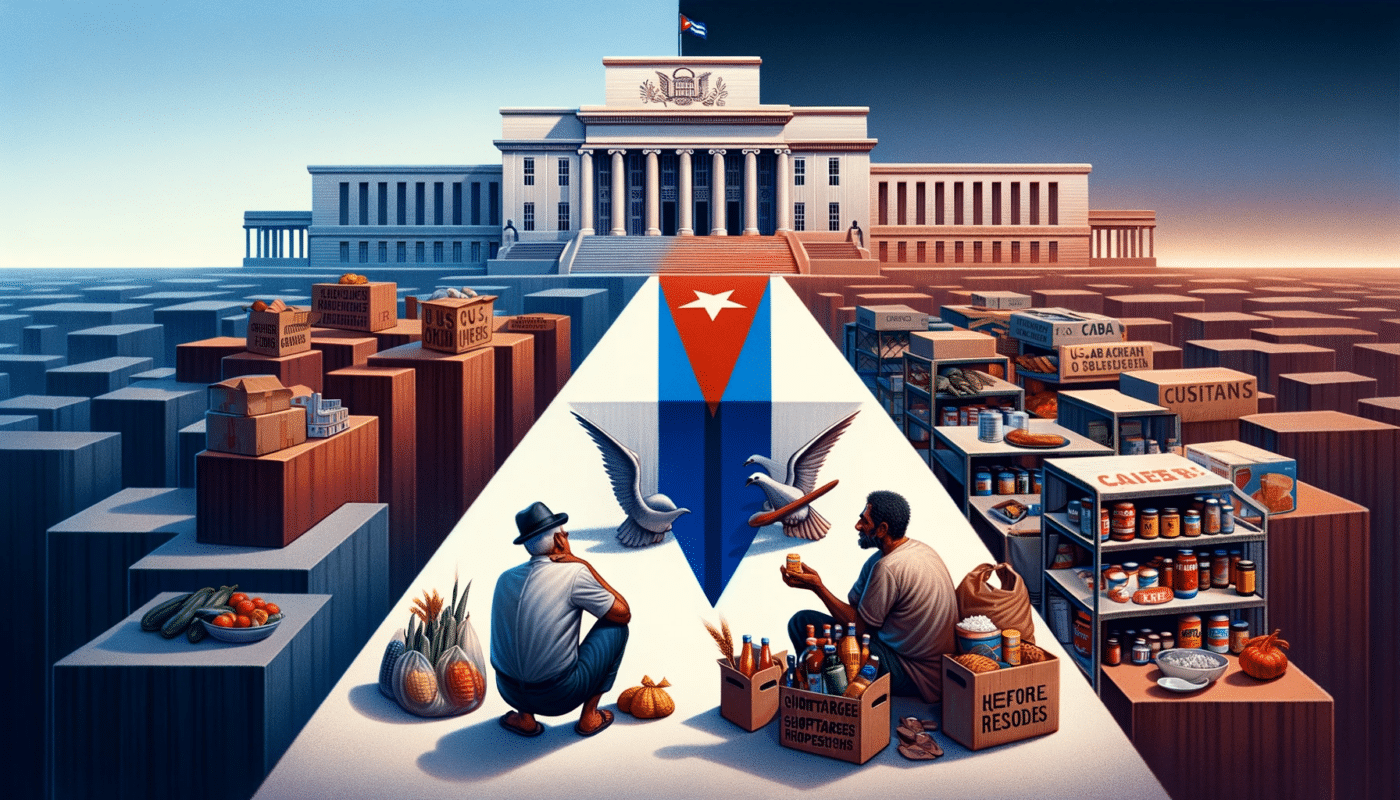The Intricate Balance of Sanctions and Human Rights
In recent years, the global community has been increasingly focused on the human rights situation in Cuba. A recent statement by Eamon Gilmore, the European Union’s human rights envoy, brings this issue into sharp relief. Gilmore’s observations, made during a diplomatic visit to Havana, highlight the multifaceted nature of human rights concerns in the island nation, particularly in the context of U.S. sanctions.

U.S. Sanctions: A Double-Edged Sword
The United States has long employed sanctions as a tool to influence the Cuban government, particularly regarding its human rights record. However, these sanctions have a complex impact. While intended to hold the Cuban government accountable, they also significantly affect the Cuban population. The sanctions severely restrict financial transactions, tourism, and trade with Cuba, leading to shortages of essential goods, including food and medicines. This situation illustrates the unintended consequences of sanctions, where measures aimed at a government end up impacting ordinary citizens the most.
The European Union’s Approach
In contrast to the U.S.’s broad sanctions, the European Union adopts a more targeted approach. The EU focuses its sanctions on individuals and entities directly involved in human rights abuses, thereby attempting to minimize the impact on the general population. This method underscores the importance of carefully considering the humanitarian implications of international sanctions.
Progress Amid Challenges: Gender Equality and Women’s Rights

Amid these challenges, Cuba has made strides in certain areas, notably in women’s rights and gender equality. This progress, however, is overshadowed by the government’s response to protests, particularly the significant demonstrations in 2021. Both the United States and the European Union have criticized the Cuban government for its heavy-handed approach to these protests, noting the large number of Cubans detained for political reasons.
A Diplomatic Balancing Act
Gilmore’s Cuba trip highlights the nuances of global diplomacy. It’s part of an EU-Cuba agreement. He met President Diaz-Canel and relatives of imprisoned protesters. These meetings show the EU’s aim to be constructive yet critical on human rights. Gilmore’s visit to Cuba is a crucial diplomatic step. It falls under an EU-Cuba cooperation deal. He engaged with President Diaz-Canel and families of detainees. These discussions illustrate the EU’s balanced approach. They aim to build bridges while addressing human rights. This visit signals a commitment to dialogue and reform in Cuba. It reflects the EU’s nuanced strategy in promoting global human rights.

The situation in Cuba presents a complex challenge for the international community.
Sanctions are key for human rights, but need careful use. They shouldn’t worsen citizens’ lives. The EU models a balanced method. It targets human rights violators specifically. The world is watching Cuba’s human rights situation. It’s a major international concern and debate topic.
This article aims to provide a balanced and in-depth analysis of the current human rights situation in Cuba, particularly in the context of international relations and sanctions. By exploring various perspectives and highlighting both challenges and progress, it offers readers a comprehensive understanding of this complex issue. (reference)
- 7 Nations That Have Gone Completely Cashless - June 30, 2025
- 10 Surprising Facts About the Amazon Rainforest - June 30, 2025
- The Ultimate Foodie’s Guide to Traveling the U.S. - June 27, 2025

Matthias Binder is a skilled author and digital storyteller with a focus on travel journalism, environmental issues, and modern home design. With a background in communications and a passion for global cultures, Matthias crafts engaging narratives that blend real-world exploration with thoughtful analysis and visual flair.
His writing reflects a deep interest in how climate change shapes our lives and lifestyles—from sustainable travel practices to eco-friendly living environments. Known for his clear, approachable voice and sharp editorial instincts, Matthias delivers content that resonates with readers seeking both inspiration and substance.
Whether reporting from remote destinations, breaking down sustainable design trends, or spotlighting innovative green initiatives, Matthias brings a global perspective and an eye for detail to every piece. He regularly contributes to web platforms and editorial projects that aim to foster awareness, creativity, and conscious living.
For any feedback message me at [email protected]

